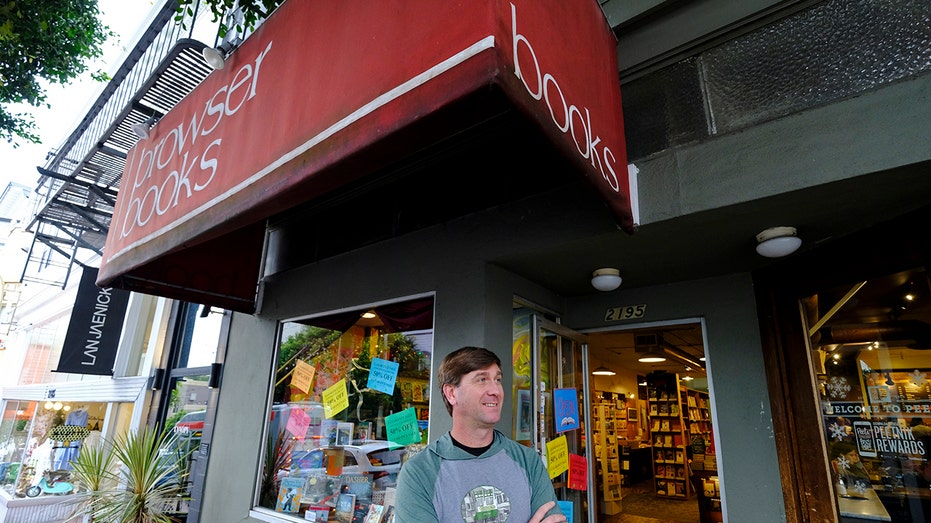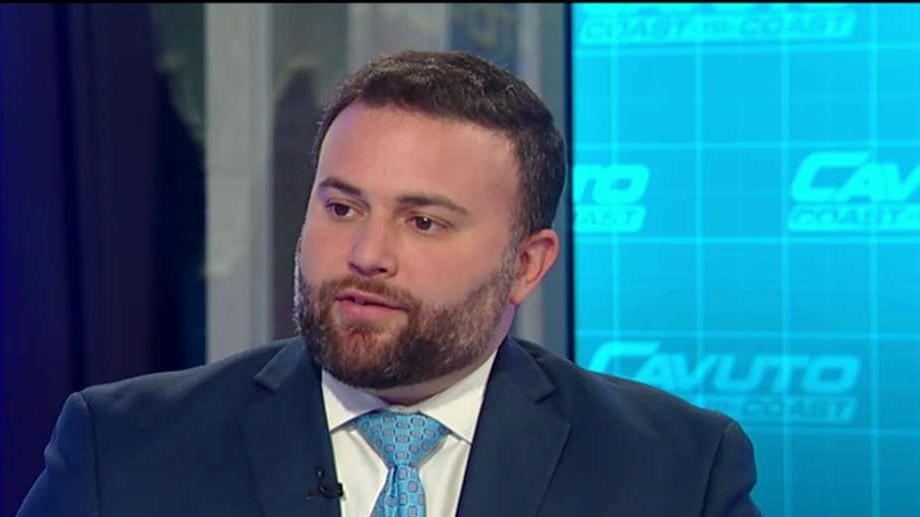Independent bookstores persevere in spite of Amazon, rising admin costs
'The industry is much better than it was'
NEW YORK — Pete Mulvihill has felt optimistic enough about selling books that he bought a third bookstore within the past two months.
“The industry is much better than it was — the last four to five years have been pretty healthy,” says Mulvihill, who owns three Green Apple Books and Browser Books shops in San Francisco. The stores have survived the devastation the independent book business suffered after Amazon.com began selling books online and at lower prices in 1995.
GET FOX BUSINESS ON THE GO BY CLICKING HERE
But Mulvihill still faces challenges. He's taken on this latest store because of economies of scale — it's cheaper to spread administrative costs across three stores instead of two. Like other booksellers, he's had to change the merchandise he stocks to keep customers coming in and buying even though they can get books cheaper — for example, on Amazon. Although books are his primary items, as much as 15 percent of sales come from what's known as non-book merchandise including gifts, music, games, cards, apparel. He also sells used and rare books.
A variety of merchandise is particularly necessary during the holidays, when, Mulvilhill says, “there are only so many books that will sell. People come in and they want to buy their uncle a puzzle.”
While book retailers like Mulvihill are cautious, statistics from the American Booksellers Association, a trade group for independent booksellers, show a recovery from the industry's darkest days. The ABA had 1,887 member companies as of May 15, up nearly 35 percent from 1,401 in 2009. The number of members' stores totaled 2,524 in May, up more than half from 1,651. Another sign of improving health: the number of books indies have sold. Book sales rose 5% in 2018 from 2017, and in 2017 they were up 2.6 percent from 2016.

Pete Mulvihill poses for a photo while standing outside at his Browser Books store that he recently opened in San Francisco. (AP Photo/Eric Risberg)
Independent sellers are doing better even as Amazon continues to thrive online and to open its own stores, so far mostly in big metropolitan areas. Amazon does not break out how much revenue it takes in from books. Barnes & Noble, which has been struggling as Amazon continues growing, also does not break out book revenue.
Indies are doing better partly because customers feel a deep connection, even affection, for the shops where they can find kindred spirits in owners and staffers, and where they can touch and leaf through the books. Social media, which helps bookstores build and nurture those relationships, also helps sales, says Dan Cullen, senior strategy officer at the ABA.
So does the growing “shop local” movement. “Literally millions of consumers are deciding to spend a certain amount of their discretionary income on locally owned stores,” Cullen says.
The indies are also helped by the fact more people are reading printed books rather than electronic versions — sales of e-books fell 37 percent between 2014 and 2018, according to the Association of American Publishers, an industry group.
Still, independent bookselling remains a low-margin and challenging business. Owners who sell toys and gifts do so because those items are more profitable than books; there's more price flexibility with non-book merchandise because publishers print the maximum price on dust jackets. Some shops have installed cafes, making their stores more inviting. These features became popular with the growth of the now-defunct Borders chain, and Barnes & Noble includes them in its stores.
AMAZON DELIVERIES SLIP, TAKE LONGER AFTER CYBER MONDAY HEADING TO HOLIDAYS
“The way to get people to go to stores is to give them an experience, something they can't get online," says Tom Meyvis, a marketing professor at New York University's Stern School of Business whose work focuses on consumer behavior. "People want to spend some time browsing in stores and with books, this is one of the more agreeable shopping experiences.
But Christine Onorati, who has WORD bookstores in Brooklyn, New York, and Jersey City, New Jersey, and has tried these strategies, worries about indies' ability to sustain their growth.
“We’ve gotten to the point where flat is great," she says. “If you can stay flat, you’re hanging on and you’re doing OK."
And bookstores still shut down, especially if rents are so high an owner can't even break even or if changing demographics mean a neighborhood can't support a store. Labor costs are also a challenge in states and cities where the minimum wage is rising.
‘’It essentially comes down to more than anything, rising payroll costs, but also costs like rent and administrative costs," says Bradley Graham, who has owned Politics and Prose in Washington, D.C., for nearly nine of its 35 years. In Washington, the minimum wage, which was $12.50 in 2017, has gone up 75 cents each year and is now $14; it rises to $15 July 1. The city also has laws requiring companies to give workers paid sick, medical and family leave.
But, Onorati says, “the good news is, when customers walk into the store, there’s an unwritten understanding they could buy cheaper else. They say, ‘I’ in here because I want to be here."
The human touch that small bookstores offer draws people in, says Chris Morrow, co-owner of Northshire Bookstore in Manchester Center, Vermont, and Saratoga Springs, New York.
“Ït's our ability to listen well and ask questions and connect people with the right book at the right time," he says. For example, someone who has suffered a loss and is looking for a book on grieving.
Some indies persevere partly because they have legendary status well beyond the cities and towns where they're located. Politics and Prose is one, and others include Denver's Tattered Cover and BookPeople in Austin, Texas. A location in a college or university town or a tourism area can boost sales.
CLICK HERE TO READ MORE ON FOX BUSINESS
Waucoma Bookstore in Hood River, Oregon, gets steady business from people visiting the Columbia River Gorge and the Cascade mountains.
“We definitely have tourists who come in for the bookstore experience,” co-owner Jenny Cohen says. “A lot of them have commented that they like the shop because they no longer have a bookstore in their community."




















